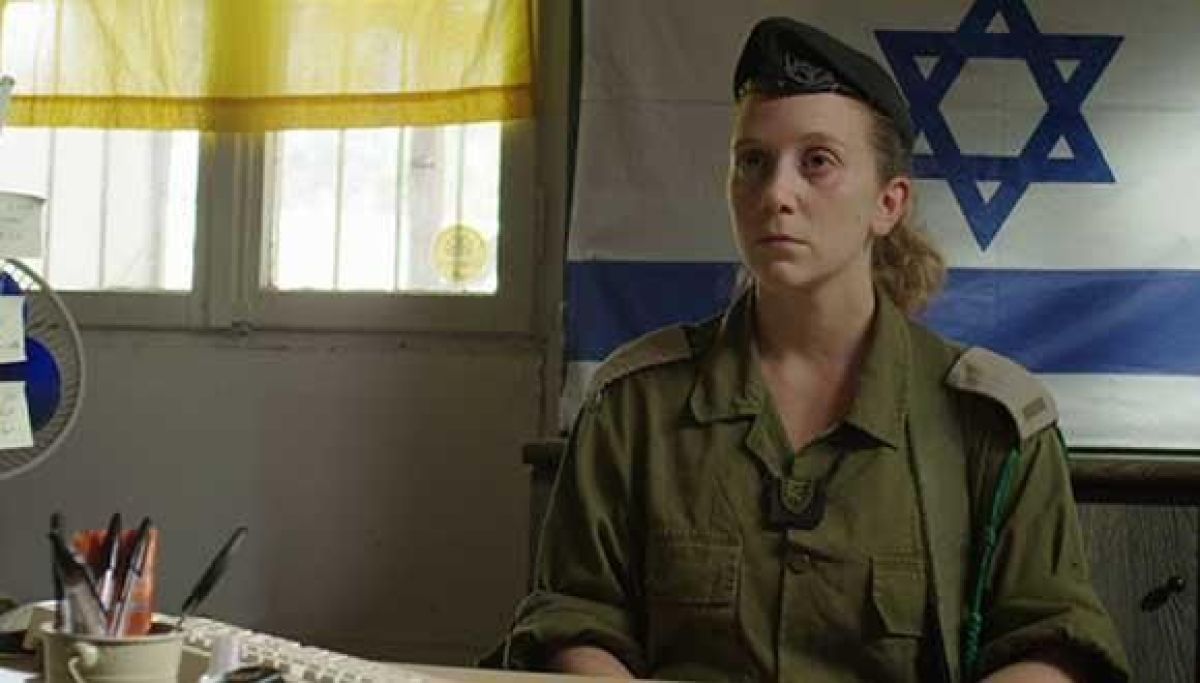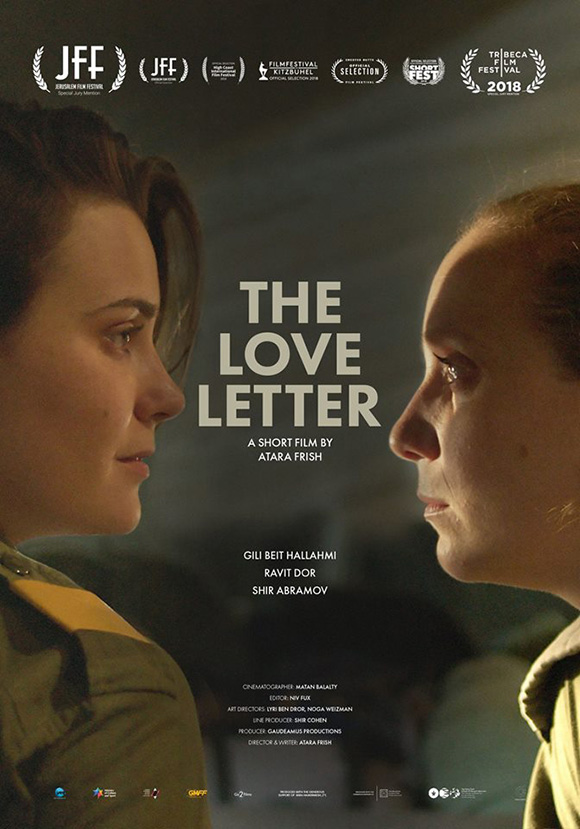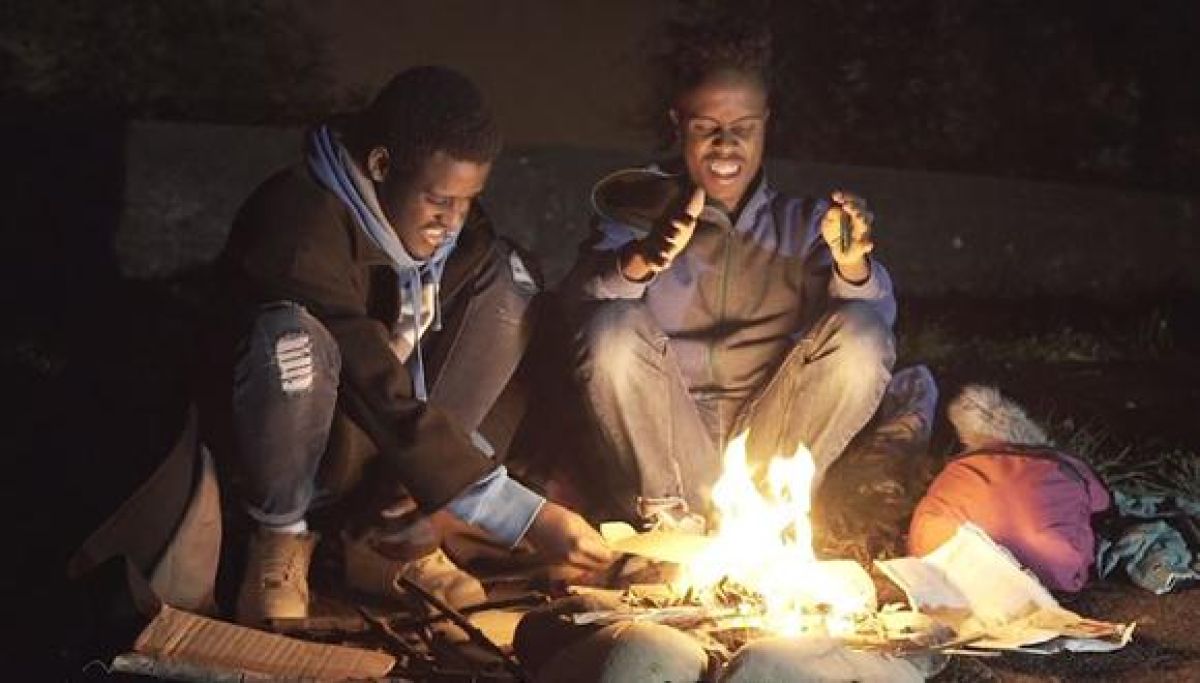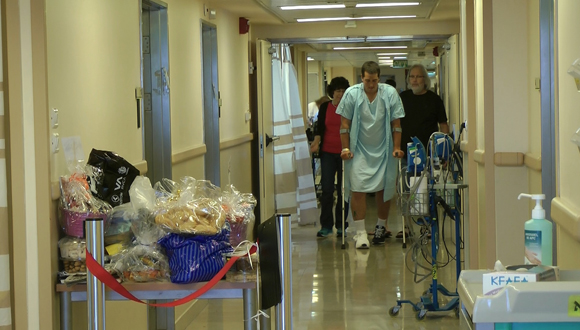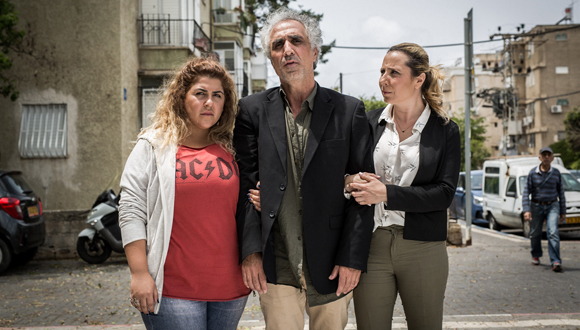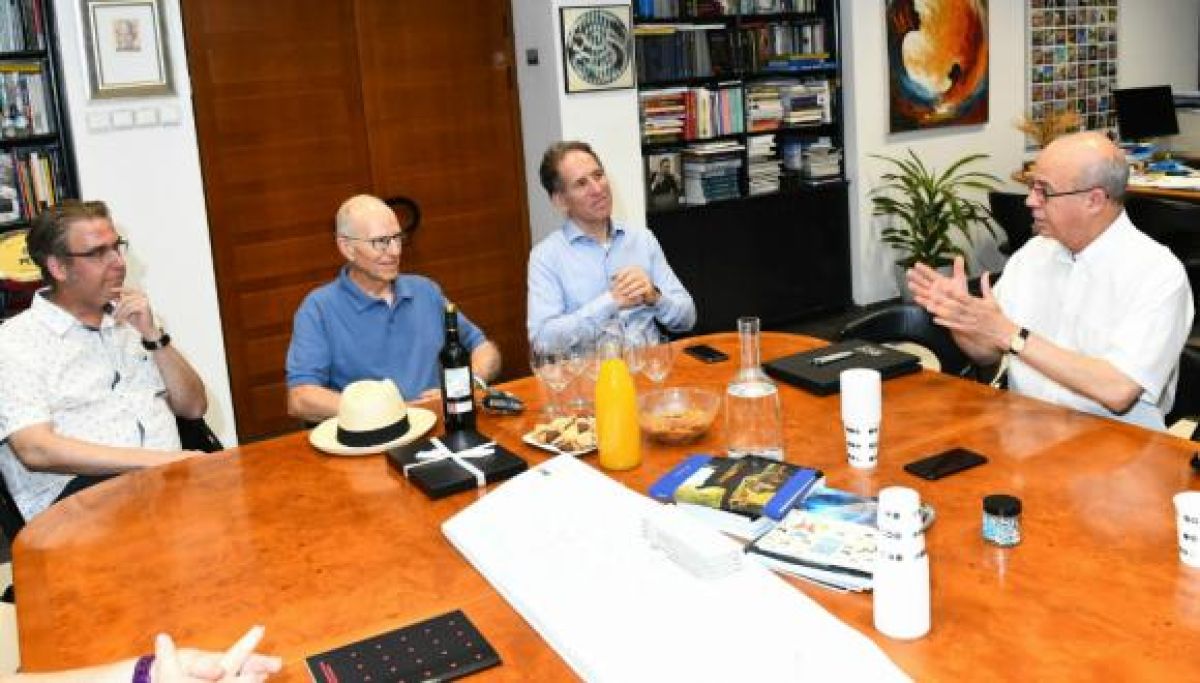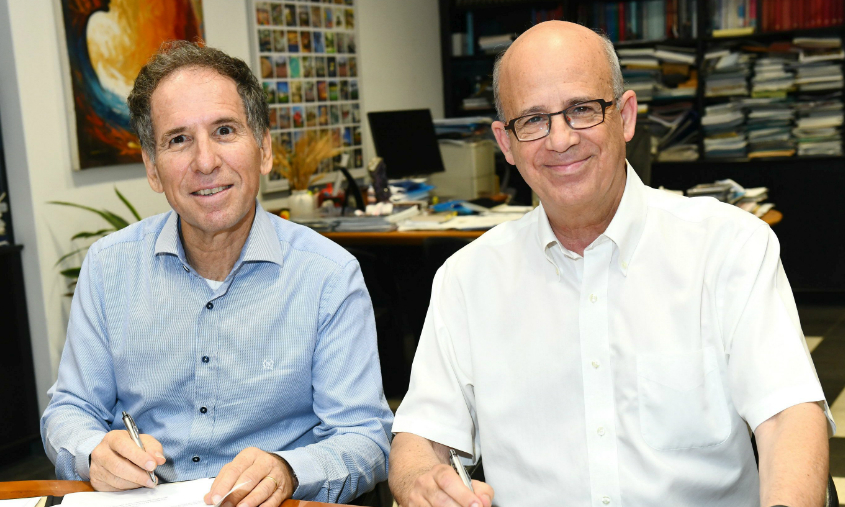Due to the coronavirus, Tel Aviv University, like many universities across the globe, has moved its classes to an online format. But can you really copy-paste a class into Zoom and expert the same experience for students? How are professors coping with the challenges of students who are sitting at home, amid a million distractions? We talked to different professors from across campus to find out.
The unexpected benefits of a crisis
Dr. Jonathan Ostrometzky teaches at the “Sciences for High Tech” program. He’s currently teaching two courses over Zoom, both for advanced B.Sc students.
According to him, remote teaching has brought unexpected advantages. “In “Introduction to Hardware”, the larger class I teach, I’ve been recording myself giving the lecture, with the presentation and all the details, and then sending students the video, even as far as a week in advance,” says Dr. Ostrometzky.
Doesn’t that make the class over Zoom unnecessary? “Not at all,” he says. “Some of the students watch the lecture in advance, though not all of them. The material is packed with details and it really helps students to be able to review things before the live lecture. It also means the questions I get, the discussion we can have, goes much deeper.”
More time for more questions
Dr. Asia Ben Cohen and Dr. Gideon Segev teach a large intro course at the Iby and Aladar Fleischman Faculty of Engineering together, to about 250 students. “The first week,” Dr. Segev says, “Dr. Ben Cohen taught classes while I was already in isolation because of COVID-19.”
Like Dr. Ostrometzky, they’ve also found that moving to Zoom has given their lectures room to breathe. “The course is one of the “heaviest” in terms of the material, of the entire Bachelor’s program. In class, we usually go pretty slowly, students need time to process and take everything in. It’s very difficult to convey the material purely through presentations, we write on the board a lot, and it helps students follow along.”

Can you learn “heavy” engineering material over Zoom?
Without a board the whole classroom was focused on at the same time, and with the difficulty of keeping students engaged when they were just muted, black boxes on the screen, the lecturers decided to flip the script.
“We divided the work between us,” says Dr. Segev. “Dr. Ben Cohen recorded herself giving the lectures the way we would do them in class, writing out equations and explaining everything as she went, and those were sent to students, so they could review them at home. Then, for my lecture time, I opened Zoom and invited everyone to come and ask questions, have a discussion with me, get help about anything they found unclear.”
Did it work? “About a month after we began online teaching, we sent our students a survey to see how they were doing, and got some really positive feedback. People were happy that they could review material, pause, repeat, and then ask me their questions live on Zoom.”
Saving the environment through Zoom
Prof. Hadas Mamane, who teaches the class “Water Purifying Technologies” to Master’s students, finds remote learning has its upsides. “I can see questions students have over chat,” Prof. Manage says. “Share different screens with them, do a poll in the middle of the class to check whether they’ve understood the material. It’s also easier to bring on guest lecturers and expose the students to broader perspectives, and it allows flexibility for students who study and work at the same time.”

Is Zoom better for the environment?
There’s also one major advantage to remote learning that Prof. Mamane sees as especially relevant for her work. “As someone who cares deeply about the environment, I see a huge benefit in the fact that my students and I don’t have to waste fuel or resources to attend a class. We, as a society and a university, have to keep our eyes on the environmental crisis, and remote learning allows us to cut back on harmful emissions.”
The challenge of engagement
But of course, there are some challenges that come with remote teaching as well. “It’s harder to tell whether students are really engaged,” says Dr. Ostrometzky. “I sometimes pause the class and ask them a question, just to see who’s listening and get some kind of feedback.”

Is anyone out there? Telling whether students are engaged can be tough.
Dr. Gal Raz, who teaches two advanced film classes at the David and Yolanda Katz Faculty of the Arts, agrees. “I teach two 4-hour classes in one day, and it’s not easy sitting in front of a screen for eight hours and feeling a bit like I’m talking to myself. The lack of eye contact isn’t very pleasant. It’s also not easy for my three children to stay quiet for that long.”
Maya Dreifuss, a director who teaches film directing and screenwriting, finds the classroom atmosphere is also difficult to replicate. “Things happen when people are in the same space together, students barge into each other’s words, talk at the same time, even when these interactions are a little disruptive they still contribute to a vibrant energy and class atmosphere.”
What happens after the pandemic?
The professors we spoke to were divided in how much of the online learning experience can be taken back into the classroom, once we eventually return to normal life.
“Everyone should be able to study in the way that works best for them,” says Dr. Ostrometzky. “I plan to keep the videos for every future iteration of the class, so students can review them whenever they want. It only enhances the classroom experience.”

What happens when we all go back to our regular classrooms?
Dr. Mamane agrees. “I feel like I’ve gone through a huge change and I don’t want to go back to how things were. I want to meet students face-to-face but also use Zoom for flexibility and things like guest lectures.”
Dr. Raz and Maya Dreifuss see things differently, both agreeing that not much of remote learning can be taken back into post-pandemic life. “Zoom can be good for one-on-one meetings with students,” Dr. Raz says. “But nothing can replace the classroom atmosphere.”
Maybe the difference of opinion can be attributed to the fact that in the arts, the classroom discussion generally carries a greater weight than in the exact sciences? Regardless, all the professors we spoke to felt remote learning has changed their perspective in some way, and has given them a new experience of teaching. Hopefully, when we all return to our classes, this new perspective will lead to even better teaching and greater academic insights.
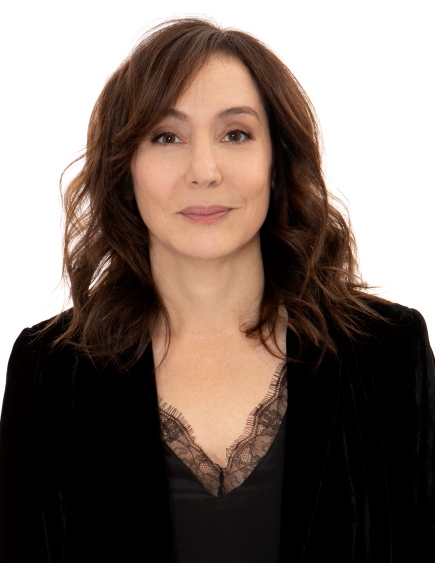 Photo: Adi Orni
In addition to her radio show and Back of the Nation, she hosts the Israeli version of the BBC TV program Room 101, in which she interviews Israeli personalities about their biggest fears or pet peeves. She also lectures about humor and writes newspaper columns. She recently produced a documentary about the anti-aging industry.
Galili is one of several well-known female comedians in Israel, but women are still the minority in the field. An avowed feminist, she says that she insists on having at least one female writer on the Back of the Nation team. What separates her from her male counterparts, she says, are the jokes she doesn’t make. She will never make a joke about a woman being old or ugly or fat, she says. ”It’s not in my agenda.”
Photo: Adi Orni
In addition to her radio show and Back of the Nation, she hosts the Israeli version of the BBC TV program Room 101, in which she interviews Israeli personalities about their biggest fears or pet peeves. She also lectures about humor and writes newspaper columns. She recently produced a documentary about the anti-aging industry.
Galili is one of several well-known female comedians in Israel, but women are still the minority in the field. An avowed feminist, she says that she insists on having at least one female writer on the Back of the Nation team. What separates her from her male counterparts, she says, are the jokes she doesn’t make. She will never make a joke about a woman being old or ugly or fat, she says. ”It’s not in my agenda.”

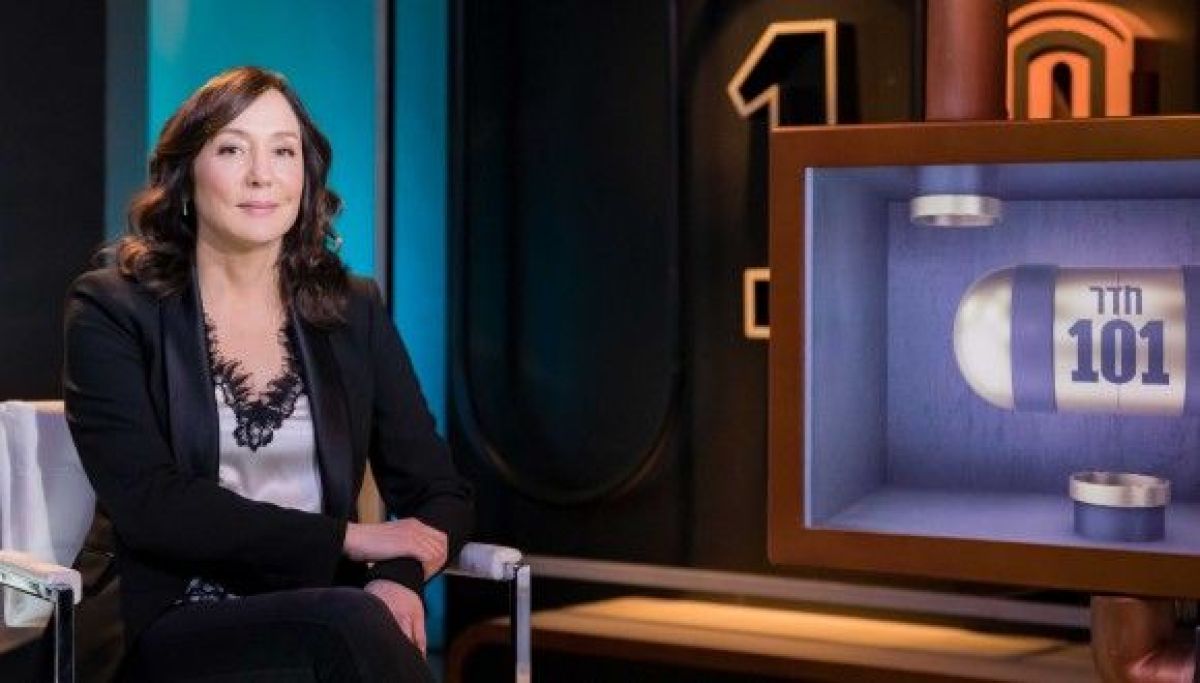
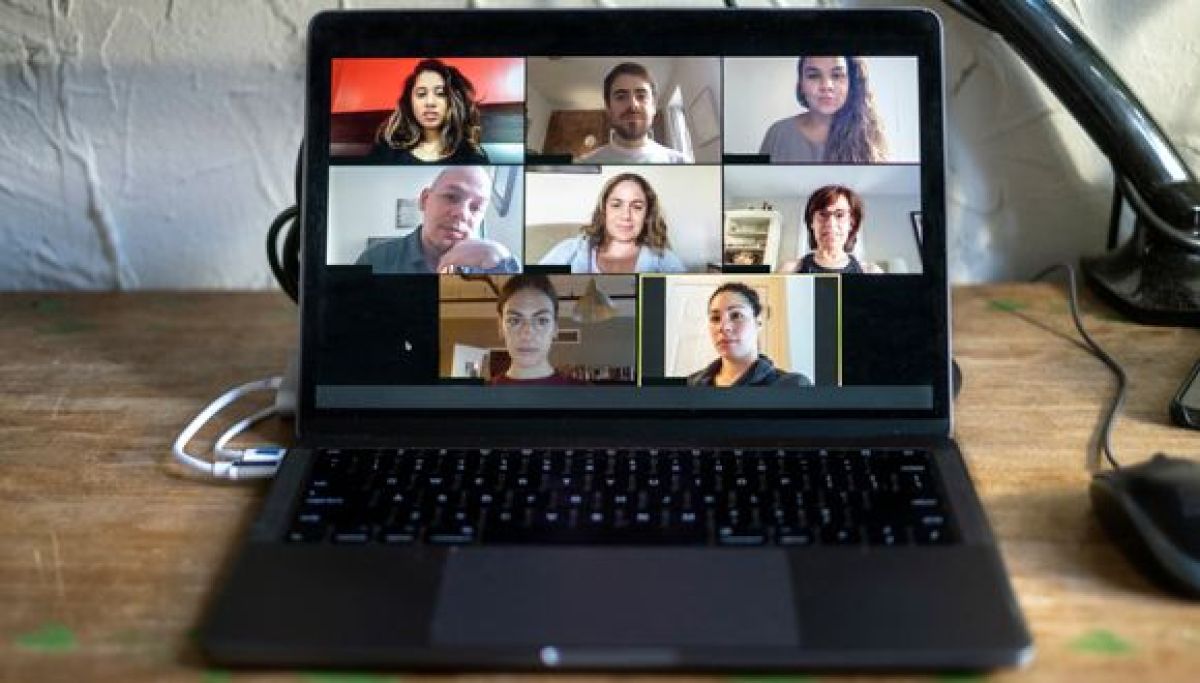




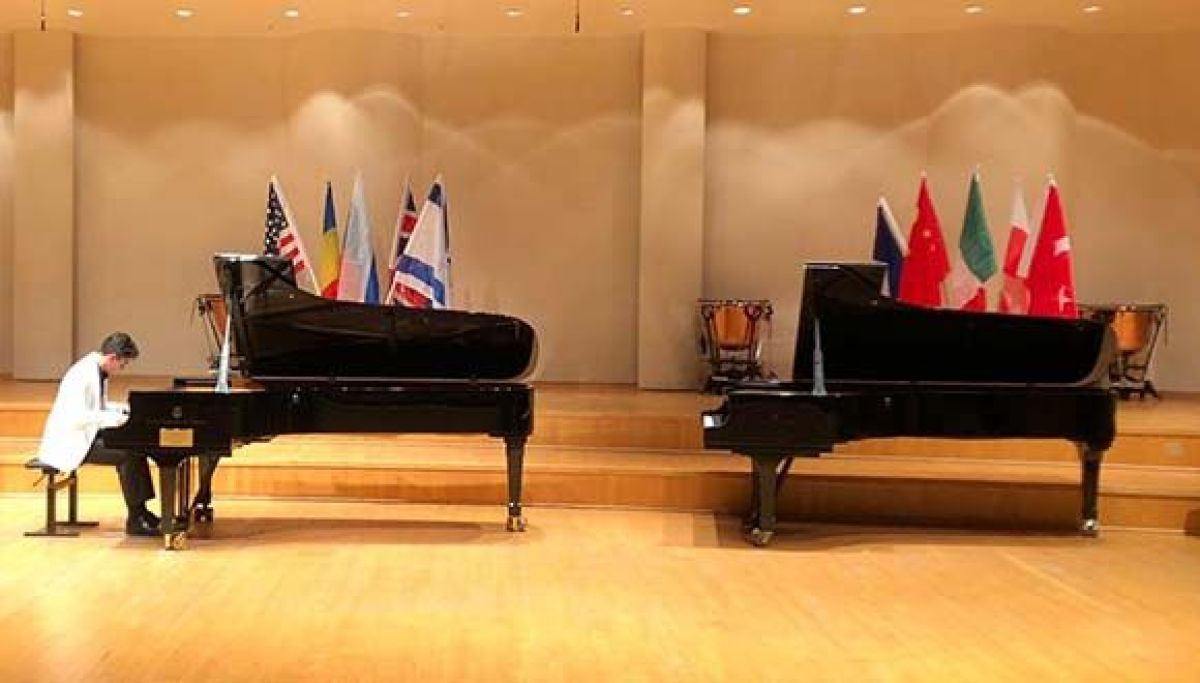
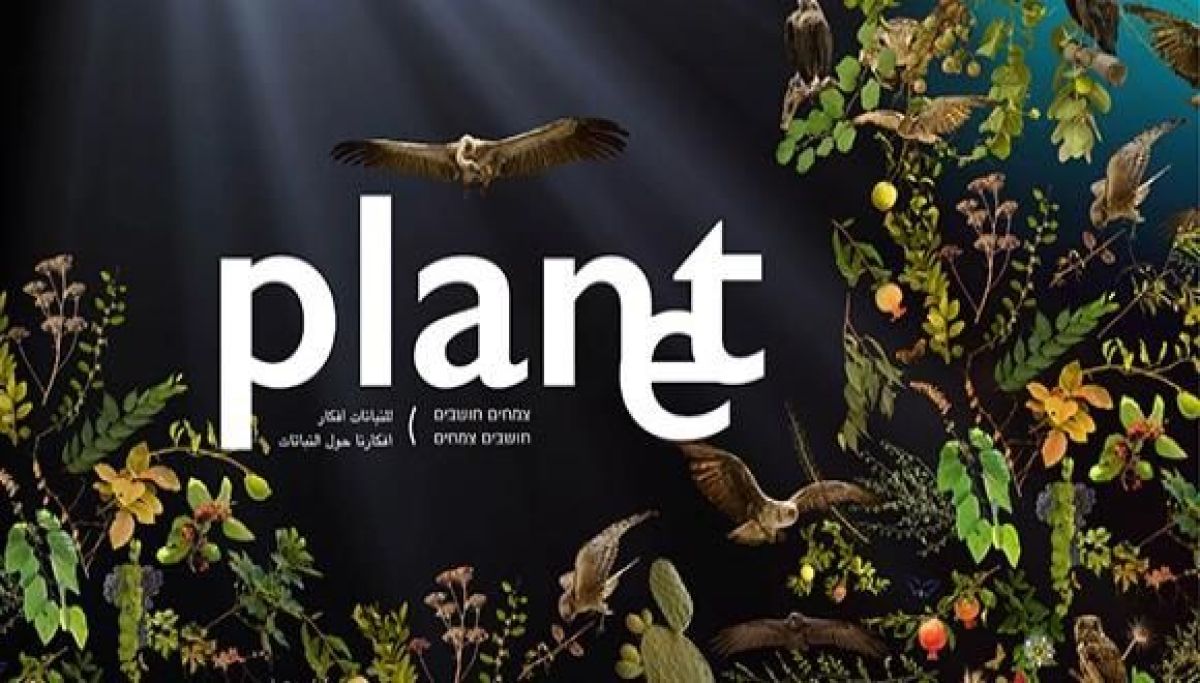
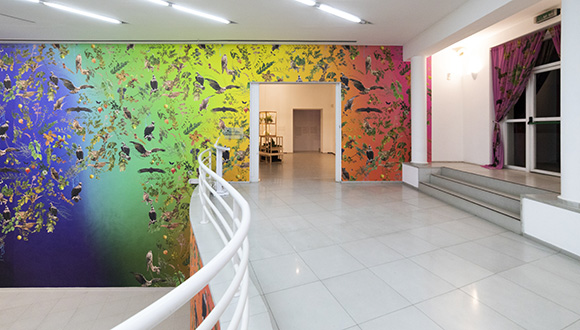 From the “Promised Land”: The gallery walls covered in all the colors of the rainbow. (Photo: Asaf Brenner)
Meet me in the living room
The “living room” created by the Onya Collective is a bright, living space intended for resting, reading and taking in the exhibition. This is a growing space, in all senses of the word, where workshops and discussions will take place, and will continue to change and expand as the exhibition continues.
From the “Promised Land”: The gallery walls covered in all the colors of the rainbow. (Photo: Asaf Brenner)
Meet me in the living room
The “living room” created by the Onya Collective is a bright, living space intended for resting, reading and taking in the exhibition. This is a growing space, in all senses of the word, where workshops and discussions will take place, and will continue to change and expand as the exhibition continues.
 A plant environment that’s also an urban environment
Robots in the field
Artist Liat Segal, known for her sophisticated use of technology, has created huge stems that respond to the changing light in the gallery space. Like plants in nature, their movement follows the light and adapts to how it changes. The stems of the robotic “plants” are coated with carbon fiber, a material that combines both organic and artificial properties.
A plant environment that’s also an urban environment
Robots in the field
Artist Liat Segal, known for her sophisticated use of technology, has created huge stems that respond to the changing light in the gallery space. Like plants in nature, their movement follows the light and adapts to how it changes. The stems of the robotic “plants” are coated with carbon fiber, a material that combines both organic and artificial properties.
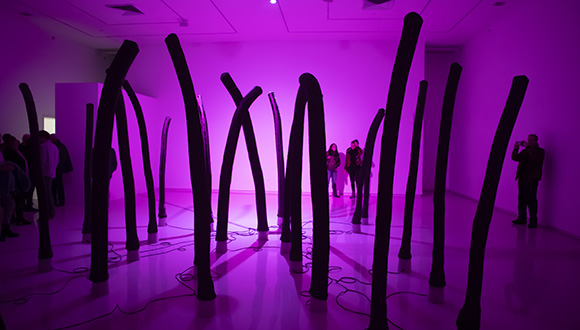 “Tropism” – giant stalks that illustrate the movement of plants. (Photo by Asaf Brenner)
The weeping stones
The final part of the exhibition is the work of the French artist Stephan Teide, “The Weeping Stones”. The giant boulders hanging in the air undermine the laws of gravity, while shedding tears in an arid world, lacking any hint of vegetation. The work presents a “miracle”: the stones seem to produce water by themselves, and the constant dripping produces both a meditative and otherworldly experience.
“Tropism” – giant stalks that illustrate the movement of plants. (Photo by Asaf Brenner)
The weeping stones
The final part of the exhibition is the work of the French artist Stephan Teide, “The Weeping Stones”. The giant boulders hanging in the air undermine the laws of gravity, while shedding tears in an arid world, lacking any hint of vegetation. The work presents a “miracle”: the stones seem to produce water by themselves, and the constant dripping produces both a meditative and otherworldly experience.
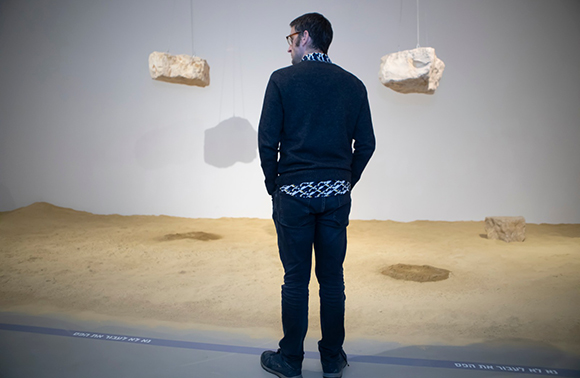 The weeping stones (Photo: Asaf Brenner)
Like nature, the exhibition is expected to change and grow throughout the year, as its living components change, expand, wilt and renew themselves. The exhibition will be open until June 2020, and will include guided tours, lectures and other events open to the public.
The weeping stones (Photo: Asaf Brenner)
Like nature, the exhibition is expected to change and grow throughout the year, as its living components change, expand, wilt and renew themselves. The exhibition will be open until June 2020, and will include guided tours, lectures and other events open to the public.
